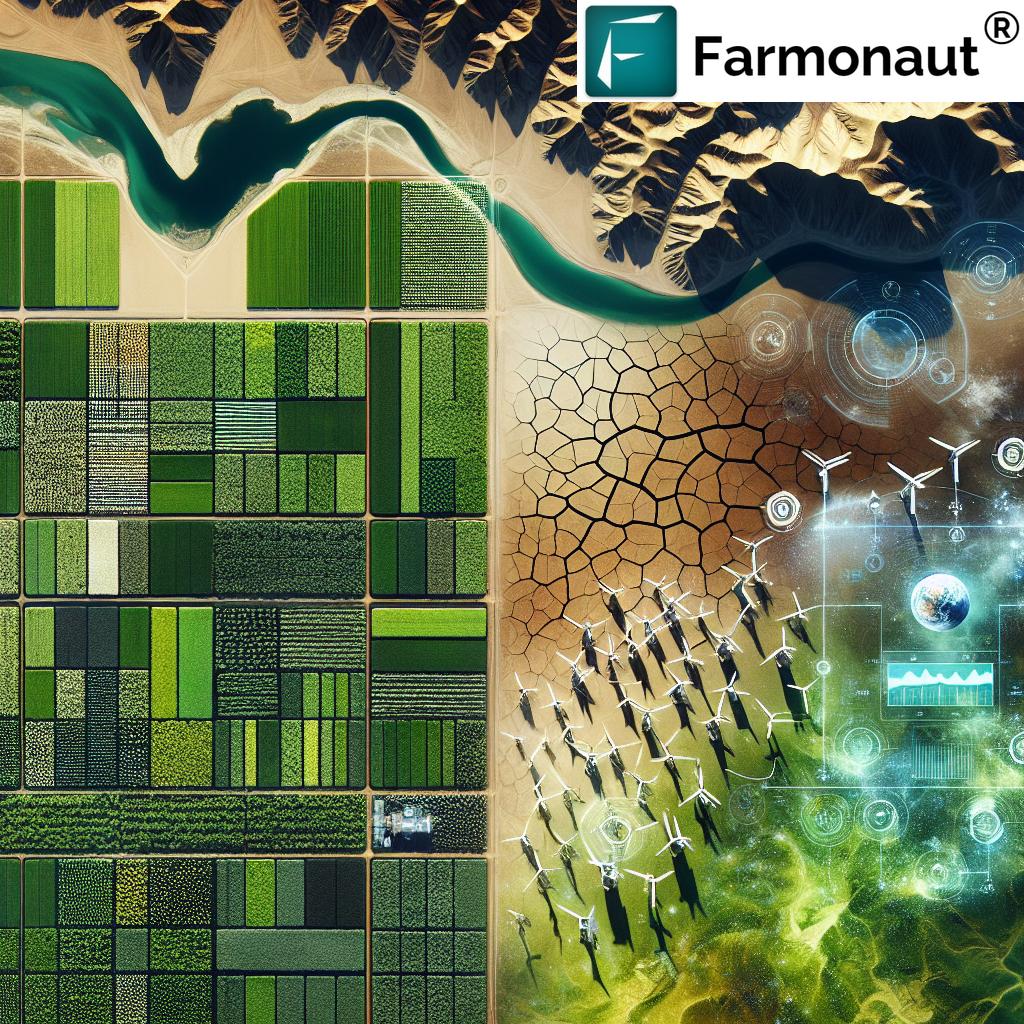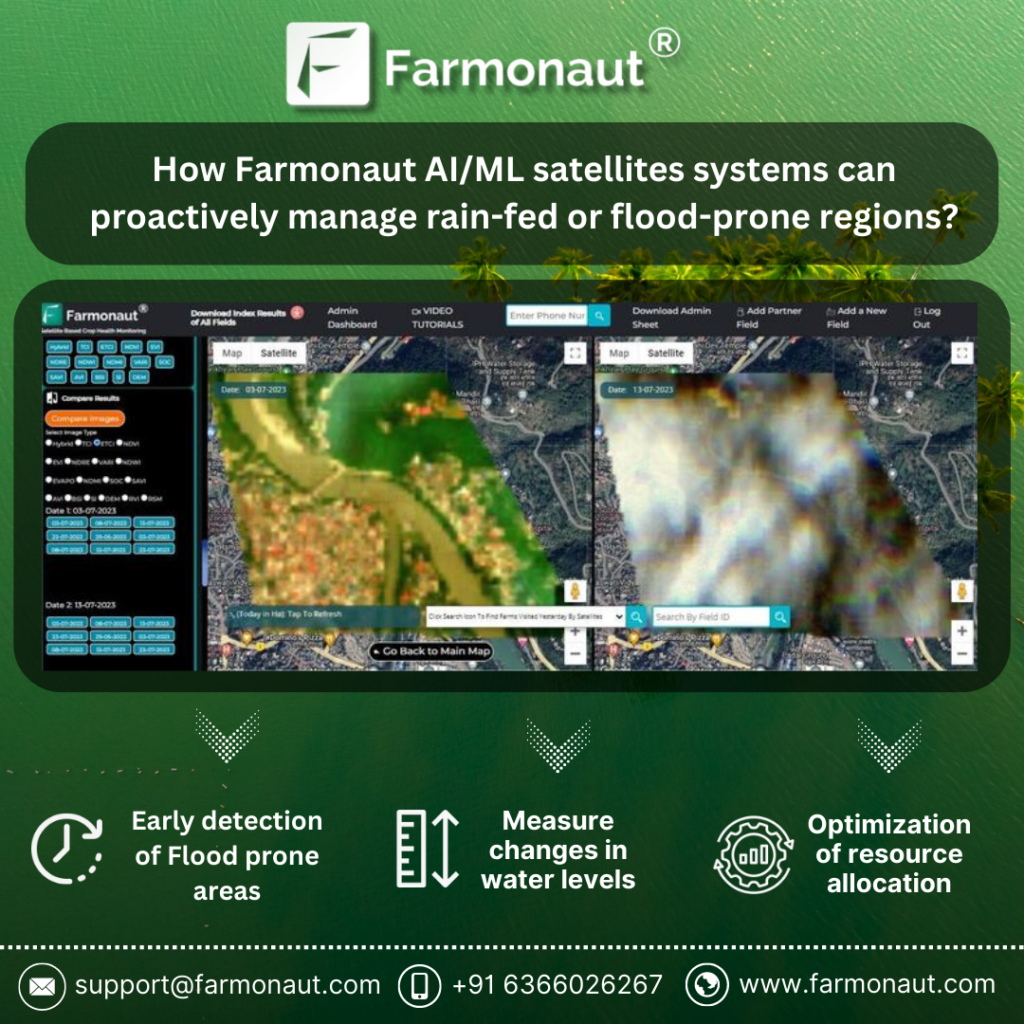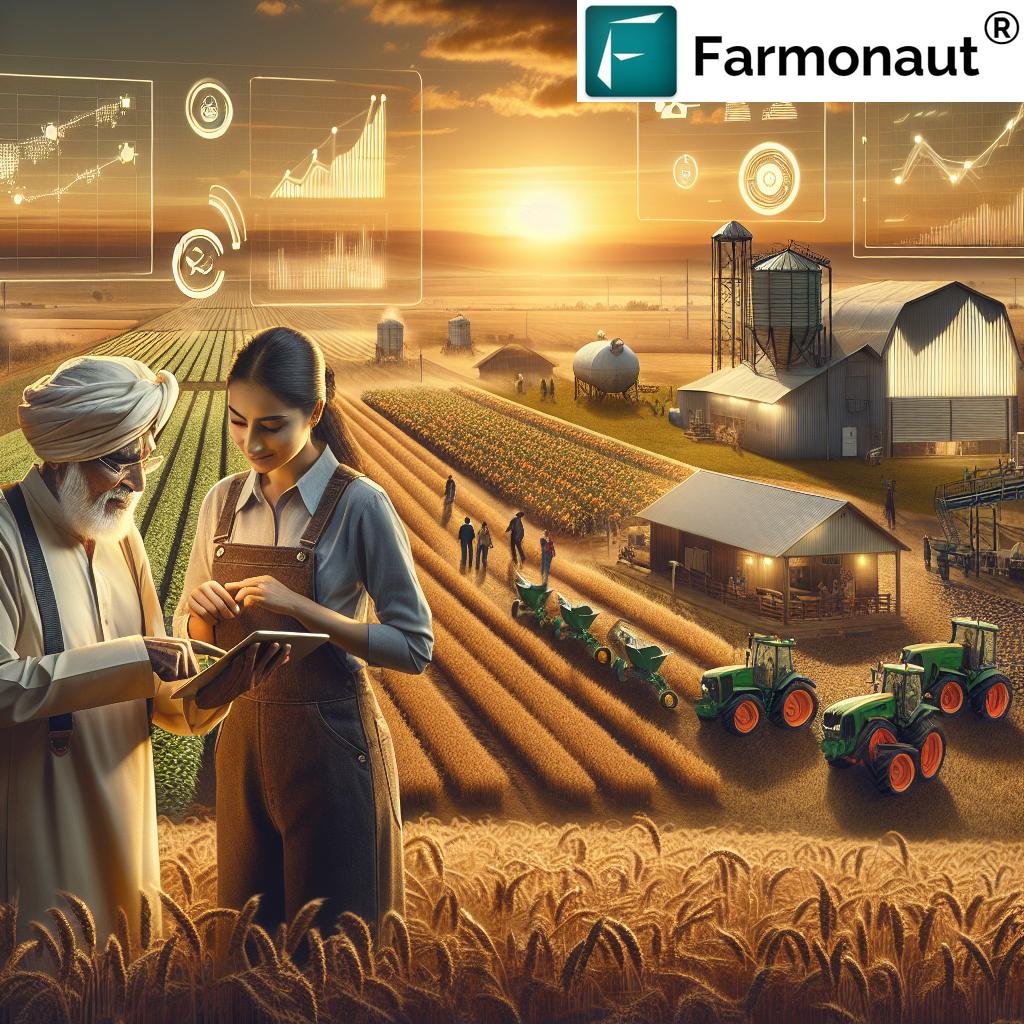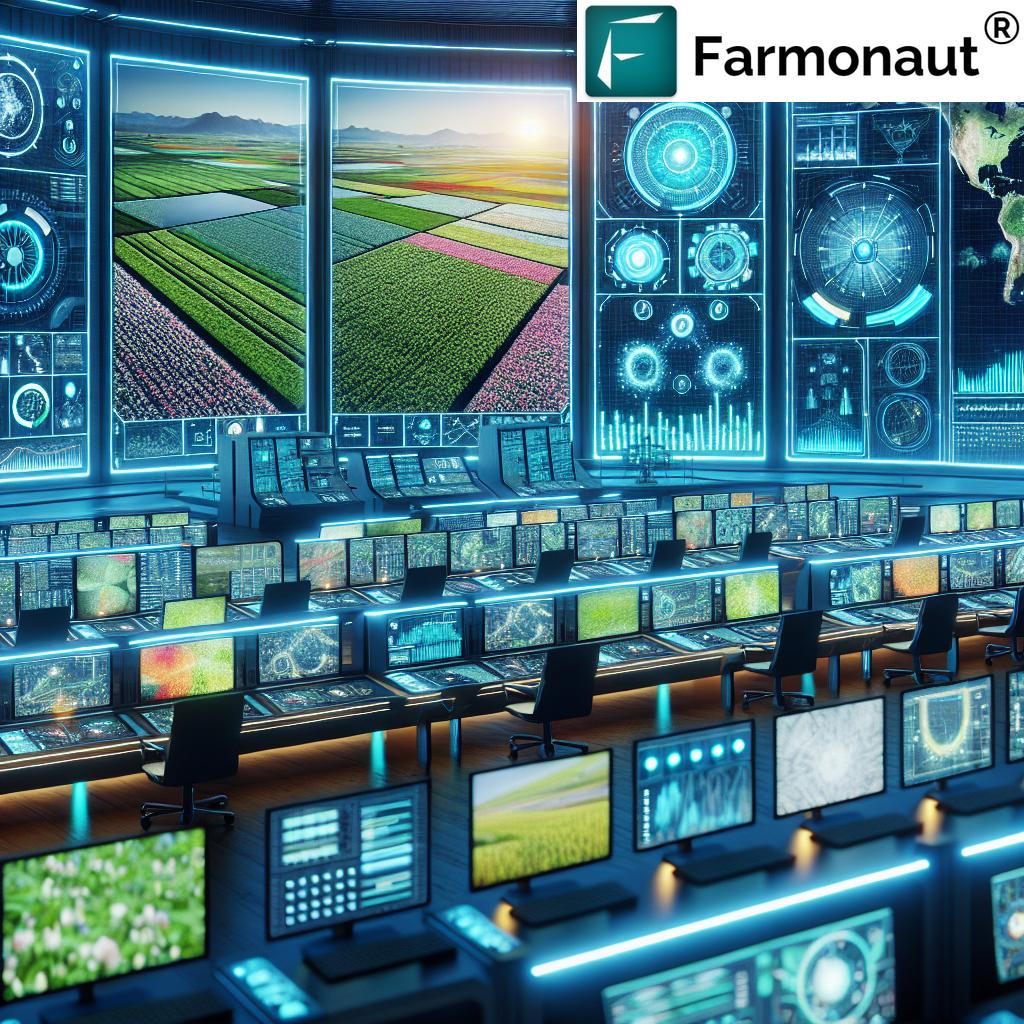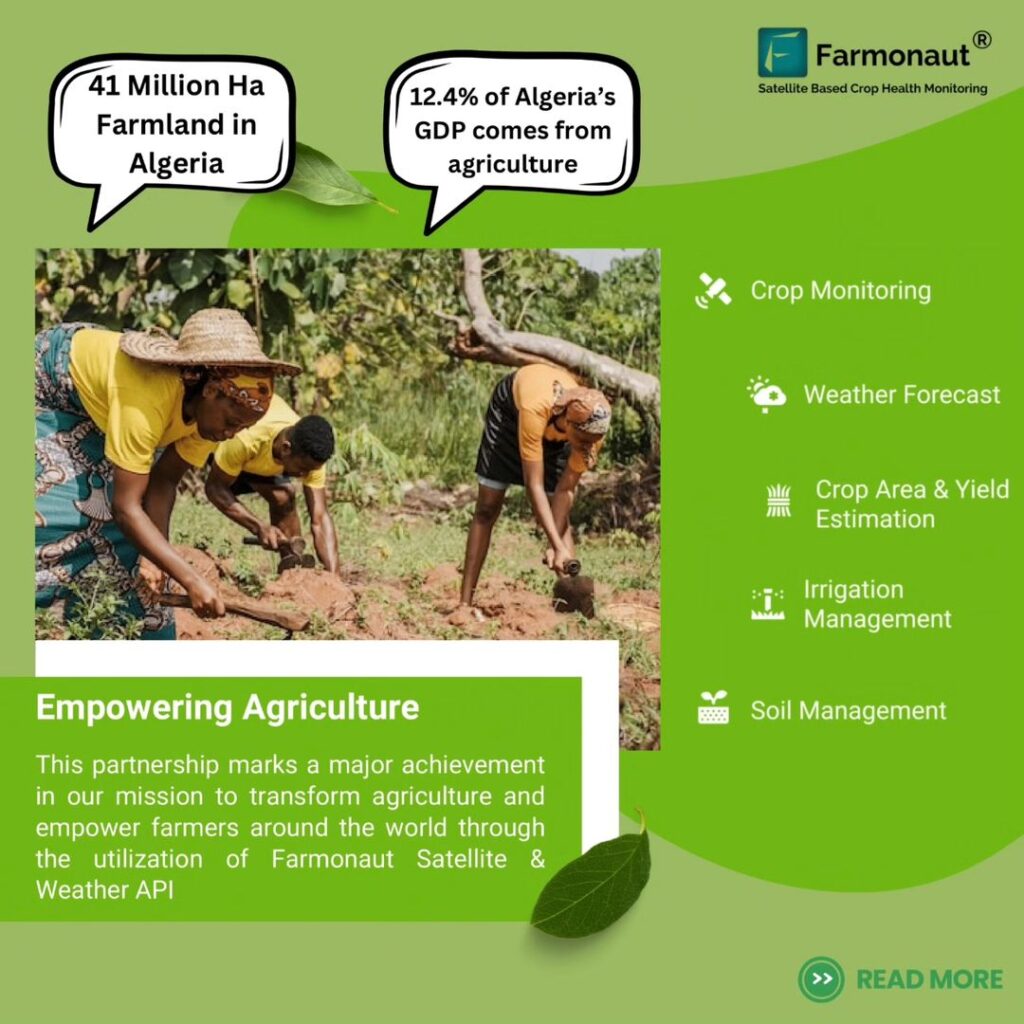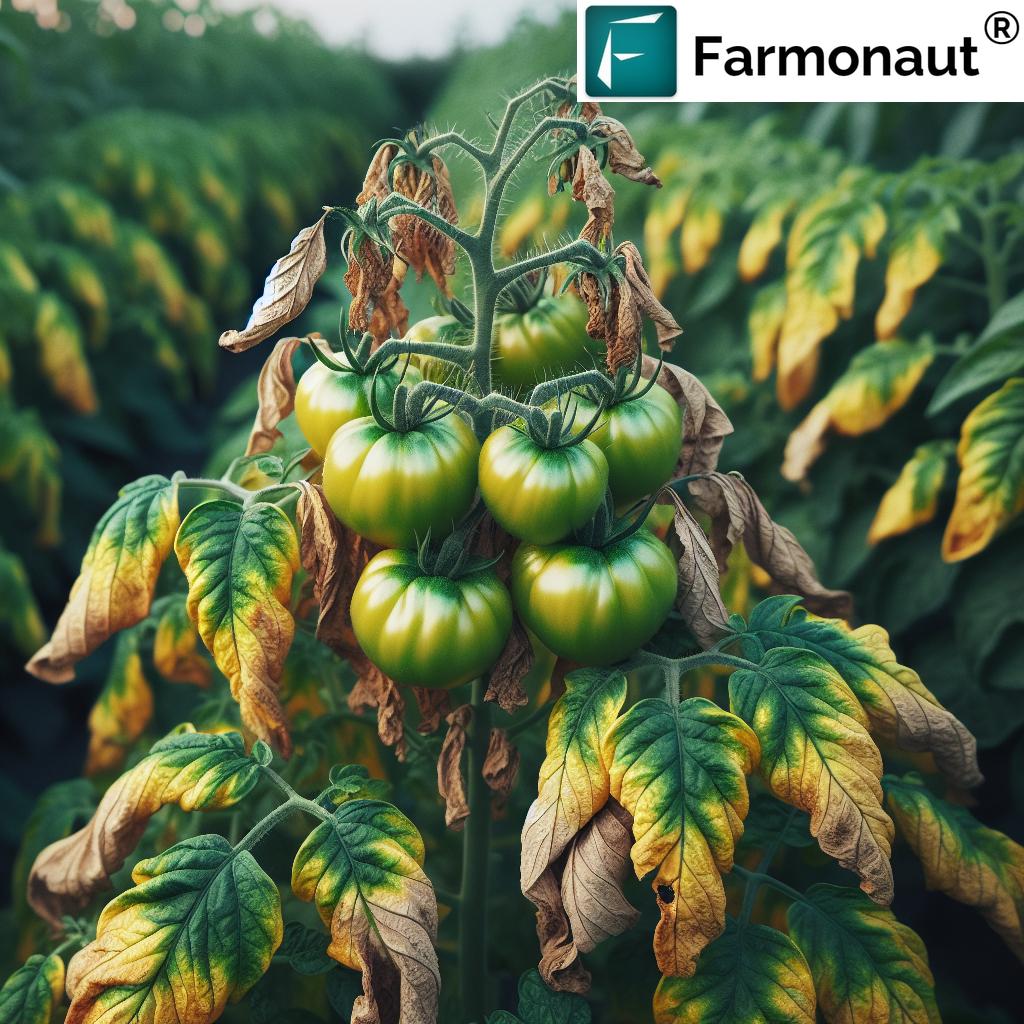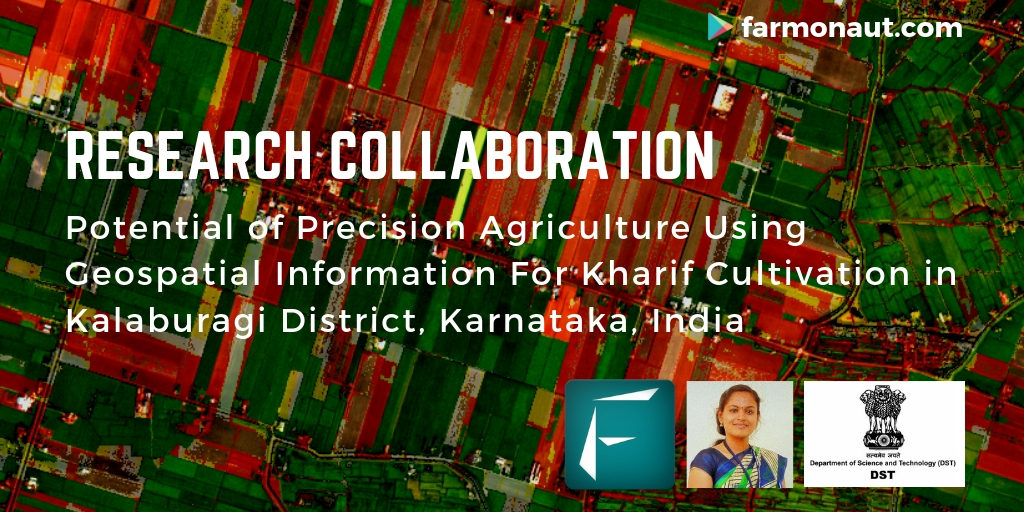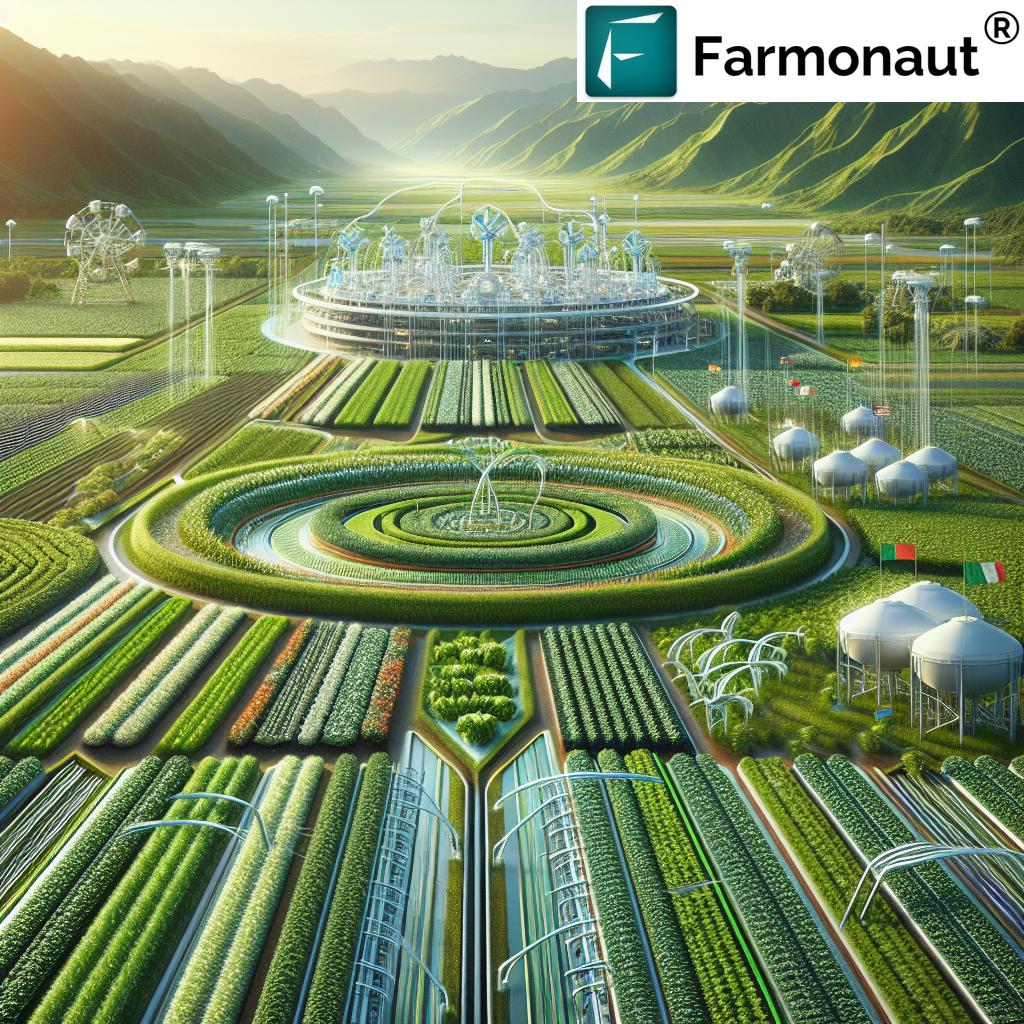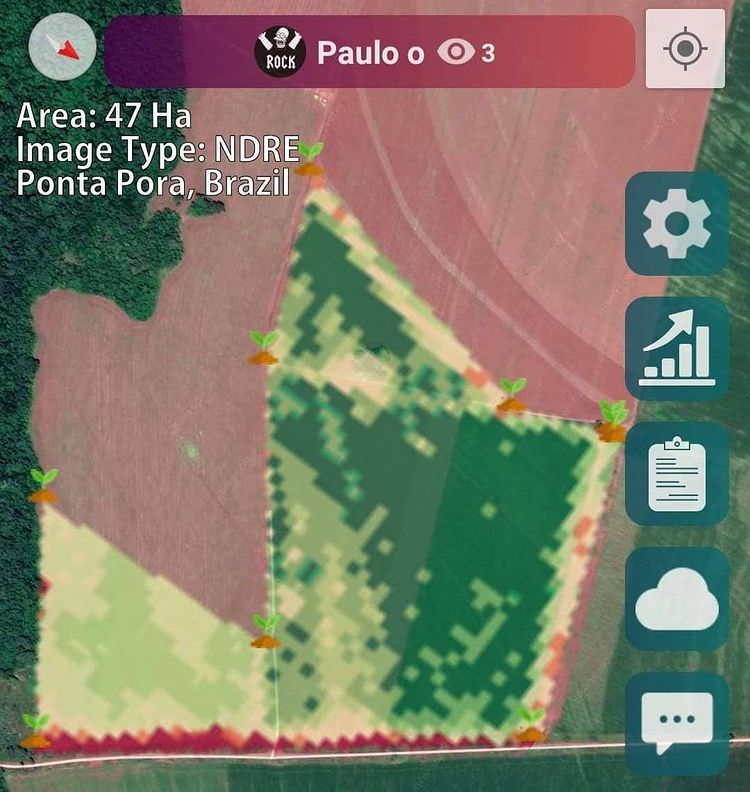“Sustainable agriculture can increase crop yields by up to 79% in developing countries through improved soil management.”
Sustainable Agriculture: 7 Shocking Secrets for Success
Welcome to our deep dive into sustainable agriculture, a revolutionary approach designed to meet our current food, fiber, and animal product needs while maintaining the health of our planet for future generations. As stewards of this Earth, our farming and food systems must evolve to support environmental health, economic profitability, and social equity. On this journey, we’ll reveal the 7 Shocking Secrets for Success in sustainable agriculture and explain how smart soil management, water conservation, crop resilience, and technology—such as Farmonaut’s precision tools—can transform the way we farm and safeguard our environment.
Whether you are a farmer looking to improve your yields, a consumer curious about where your food comes from, or someone passionate about a greener future, join us as we unlock the secrets to sustainable farming practices that empower communities and nurture our planet.
Key Principles of Sustainable Agriculture
Sustainable agriculture stands upon three foundational pillars that guide its methods and philosophy. Understanding these core principles allows us to appreciate not just the what, but the why behind each sustainable practice.
- Environmental Health: Our journey begins with promoting farming techniques that preserve natural resources, prevent pollution, and support biodiversity. Sustainable farming practices like cover cropping and reduced tillage are devised to reduce soil erosion, protect water sources, and promote a thriving ecosystem.
- Economic Profitability: For any agricultural system to be viable, it must balance environmentalism with economic viability. By reducing input costs, diversifying income, and utilizing advanced management tools (such as Fleet Management), we ensure farmers remain financially stable and local economies are supported.
- Social Equity: A truly sustainable approach supports farmers, workers, and consumers alike. Fair treatment, access to resources, and transparent supply chains (aided by blockchain-based traceability), promote social fairness across the food system.
7 Shocking Secrets for Success in Sustainable Agriculture
What transforms conventional agriculture into a system that protects our planet and secures our future? The shock lies not only in the facts—but in the impact these sustainable practices have on soil health, biodiversity, water conservation, and crop resilience.
“Smart soil management reduces water usage by up to 50%, supporting both farmers and environmental conservation.”
-
1. Crop Rotation and Diversity—Our Secret to Soil Resilience
Crop rotation and diversity are essential to improving soil fertility and increasing farm resilience. By planting a variety of crops in succession (for example, alternating cereals and legumes), we naturally replenish nitrogen in the soil, reduce pest infestations, and minimize the impact of climate variability. This ancient yet highly effective practice also restores organic matter and enhances soil fertility for future generations.
- Improves soil structure and microbial activity
- Reduces soil erosion by maintaining ground cover year-round
- Limits the build-up of crop-specific pests and diseases
-
2. Cover Cropping—The Green Shield for Our Fields
Cover cropping means planting crops such as clover or rye during off-seasons to protect the soil. These crops suppress weeds, reduce soil erosion, and are turned into the soil as green manure, increasing organic matter. As a bonus, cover crops promote biodiversity and act as natural pest deterrents.
- Retains soil moisture and prevents nutrient leaching
- Enhances soil fertility without chemical fertilizers
-
3. Reduced Tillage—Preserving Our Soil’s Hidden Life
One of the most impactful sustainable techniques is reducing soil disturbance through no-till or minimum-till agriculture. This maintains soil structure, conserves soil organic carbon, and allows beneficial microbes and earthworms to thrive—forming the very basis of productive, climate resilient agriculture.
- Reduces fuel costs and labor requirements
- Lowers risk of soil compaction and losses from runoff
-
4. Integrated Pest Management (IPM)—Nature’s Multi-Layered Defense
Integrated pest management (IPM) is an approach that blends biological, physical, and chemical techniques to manage pests effectively, reduce reliance on pesticides, and minimize environmental impact. By introducing natural predators, utilizing pest-resistant varieties, and monitoring pest levels, we reduce chemical use while sustaining crop yields.
- Promotes biodiversity and ecosystem health
- Reduces pesticide resistance buildup in pests
-
5. Agroforestry—Blending Trees and Crops for Greater Benefits
Agroforestry systems integrate trees and shrubs with crop and livestock farming. Trees provide shade, shelter, improved water retention, and organic matter—resulting in richer soil and enhanced biodiversity. In regions like Brazil and West Africa, agroforestry helps restore degraded ecosystems and provides additional sources of income (such as fruits or nuts).
- Improves soil and water management
- Buffers crops from wind erosion and temperature extremes
-
6. Efficient Water Management in Farming—Every Drop Counts
Efficient water management in farming, like drip irrigation and rainwater harvesting, allows us to reduce water waste and ensure crops get exactly what they need. By using drought-tolerant varieties and optimizing irrigation schedules (aided by real-time monitoring tools such as those from Farmonaut), farmers can adapt to water scarcity and support environmental conservation.
- Reduces water costs and improves crop quality
- Helps mitigate the effects of climate change
-
7. Soil Fertility Management—The Foundation of Sustainable Agriculture
Improving soil fertility is at the core of all sustainable agriculture methods. Applying organic manures, compost, and green manures adds essential nutrients and improves soil structure. Limiting synthetic fertilizer use benefits both environmental quality and long-term farm productivity.
- Reduces chemical runoff and protects waterways
- Ensures nutrient-rich soil for current and future generations
Watch Key Insights on Sustainable Agriculture and Farmonaut’s Technology
How Farmonaut Empowers Sustainable Farming Practices
Let’s talk about the pivotal role that advanced technology, especially platforms like Farmonaut, plays in enabling truly sustainable agriculture. By seamlessly integrating satellite imagery, AI-driven analytics, and blockchain, Farmonaut offers world-class tools for precision crop, soil, and resource management—making sustainable methods accessible, affordable, and scalable for all farmers.
Real-Time Crop Monitoring and Decision Support
- Our farm management solution helps monitor crop health using multispectral satellite imagery (NDVI, soil moisture, etc.), providing actionable insights directly to the field.
- AI-powered advisory (Jeevn AI) delivers weather forecasts, disease alerts, and expert recommendations, ensuring the best sustainable farming practices are implemented at the right time.
Precision Resource and Water Management
- By integrating data-driven irrigation and fertilizer advice, we help reduce water waste, lower input costs, and increase overall resource efficiency on every farm.
- Comprehensive fleet management tools ensure optimal machinery usage, saving time and reducing fuel consumption (Explore Fleet Management Solutions).
Transparent and Efficient Supply Chains
- Blockchain-based traceability empowers farmers, producers, and businesses to ensure product authenticity and transparent supply from farm to table (Discover Product Traceability Features).
Empowering Access for All Farmers
- Our mobile-first platform is accessible via Android, iOS, and web browsers, as well as through API for integration with other farm systems (API Access for Farm Data | Developer Docs).
- From smallholders to large agribusinesses and government projects, Farmonaut’s scalable solutions ensure that everyone benefits from technological advancements in sustainable agriculture (Large Scale Farm Management).
Comparative Impact Table: Sustainable vs. Conventional Agriculture
Explore our side-by-side comparison of key sustainable agriculture practices versus conventional farming. This table highlights how sustainable farming strategies substantially improve crop resilience, boost biodiversity, reduce water use, and positively impact both farmer profitability and the environment.
| Practice & Approach | Crop Resilience Improvement (%) | Biodiversity Increase (%) | Water Use Efficiency (% Reduction) | Farmer Profit Increase (%) | Environmental Impact Score |
|---|---|---|---|---|---|
| Cover Cropping (Sustainable) | +25% | +40% | +30% | +20% | High Positive |
| Cover Cropping (Conventional: Bare Soil) | Baseline | Baseline | Baseline | Baseline | Neutral/Negative |
| Reduced Tillage (Sustainable) | +30% | +15% | +25% | +12% | Moderate Positive |
| Conventional Plowing | Baseline | -10% | Baseline | Baseline | Negative |
| Integrated Pest Management (IPM) | +16% | +30% | +15% | +8% | High Positive |
| Conventional Chemical Control | Baseline | -15% | Baseline | Baseline | Negative |
| Agroforestry (Sustainable) | +22% | +60% | +17% | +15% | High Positive |
| Monoculture (Conventional) | Baseline | Baseline | Baseline | Baseline | Neutral/Negative |
| Efficient Water Management in Farming | +18% | +20% | +50% | +10% | High Positive |
| Traditional Flood Irrigation | Baseline | Baseline | Baseline | Baseline | Neutral/Negative |
*Data based on industry-accepted estimates and peer-reviewed meta-analyses. Individual farm results may vary depending on local conditions, adoption, and management quality.
Benefits and Challenges of Sustainable Agriculture
Benefits: Why the Sustainable Approach Matters
- Environmental Benefits: Practices that reduce chemical inputs, promote crop rotation, and maintain soil cover help us preserve ecosystems, improve soil health, mitigate climate change, and reduce pollution.
- Economic Benefits: Reduce input costs (fertilizers, pesticides, fuel) while improving yields and opening new high-value markets (such as organic and sustainably tagged products).
- Social Benefits: By promoting food security, fair treatment, and preserving traditional knowledge, we foster resilient rural communities and ensure equitable access to resources.
- Risk Mitigation: Crop diversity and adaptive soil management increase farm resilience against pests, disease outbreaks, and climate variability.
Challenges and Considerations
- Knowledge and Training Gaps: Transitioning to sustainable practices requires new knowledge, data-driven tools, and ongoing learning. Farmonaut’s real-time advisory bridges this gap with actionable, personalized solutions.
- Initial Investment: Adopting new methods, equipment, or organic amendments can require upfront resources. Satellite-based crop verification helps farmers access credit and insurance with confidence.
- Short-Term Yield Declines: Sustainable systems may temporarily reduce yields during transition. However, long-term productivity and soil health improvements outweigh these short-term challenges.
- Market Access: Successfully marketing sustainable and organic products may require certification or supply chain transparency—made easier with tools like traceability platforms.
Sustainable Agriculture in the Global Context
Around the world, the shift to sustainable agriculture is shaped by local climates, traditional knowledge, and global trends. In Africa, integrating traditional soil fertility management—like compost and manure—with new technologies ensures food security despite drought and climate shocks. In Brazil and Amazonia, agroforestry systems are vital for restoring rainforests and boosting farmer income, even amidst environmental challenges.
- Climate resilient agriculture is the key to combating harsh droughts and unpredictable rainfall.
- Sustainable agriculture offers both economic viability and environmental protection for future generations worldwide.
Farmers everywhere benefit from accessible, data-driven management platforms that optimize crop planning, reduce costs, and ensure both farm productivity and sustainability.
Farmonaut Subscriptions & Resources
Interested in bringing advanced precision and sustainability to your farm or agribusiness? Sign up for Farmonaut’s subscription plans to unlock real-time satellite data, AI advisory, and resource management—accessible to farmers, businesses, and institutions worldwide!
FAQ: Your Sustainable Agriculture Questions Answered
What is sustainable agriculture?
Sustainable agriculture is an integrated approach to farming that maintains the environmental, economic, and social health of our food systems. It uses practices that improve soil fertility, preserve resources, respect biodiversity, and support local communities for current and future generations.
How does improving soil fertility help farmers?
Healthy soil is the foundation of all farming. By naturally replenishing nutrients through methods like crop rotation, cover cropping, and applying organic manure, farmers can reduce input costs, increase yields, and ensure crops are more resilient to climate shocks.
What are integrated pest management techniques?
Integrated pest management (IPM) brings together different pest-control methods—biological (natural enemies), cultural (crop rotation), physical (barriers), and minimal chemical use. This reduces pest infestations while avoiding over-reliance on any single technique or chemical pesticide.
How does sustainable agriculture improve water use?
Practices like drip irrigation, soil moisture monitoring, rainwater harvesting, and organic matter management help use water efficiently, reducing waste by up to 50% and ensuring sustainability during droughts.
Is it expensive to adopt sustainable agriculture?
While some practices may require initial investment (new machinery, cover crop seeds, training), long-term benefits include lower input costs, improved soil health, and premium market access. Tools like Farmonaut can help minimize costs with data-based decision making.
How can data and technology support farmers?
Platforms like Farmonaut provide real-time data on crop health, soil conditions, and weather—along with advisory on resource management. This enables precision farming, reduces input waste, and supports sustainable outcomes while remaining cost-effective.
Conclusion: Securing Our Future with Sustainable Practices
Sustainable agriculture offers a clear path toward environmental stewardship, economic security, and social equity. By integrating the 7 shocking secrets—crop rotation, cover cropping, reduced tillage, integrated pest management, agroforestry, water management, and thoughtful soil fertility practices—we set the stage for a world where farms are resilient, productive, and restorative for our planet and its people.
With easy-to-use tools like Farmonaut, sustainable agriculture is no longer an idealistic concept but a practical, data-driven reality for every farmer—from the smallest field in Africa to vast commercial operations in Brazil and beyond. By investing in sustainable methods, embracing technology, and championing biodiversity and resource conservation, we ensure our food systems remain secure and thriving for generations to come.
Ready to take the next step? Try Farmonaut’s advanced solutions for agricultural management and experience the benefits of sustainable agriculture for yourself!












